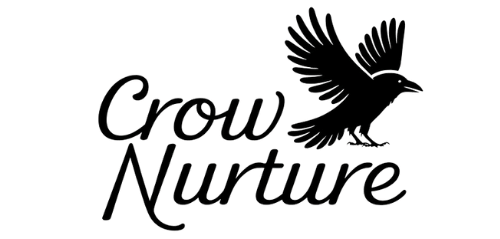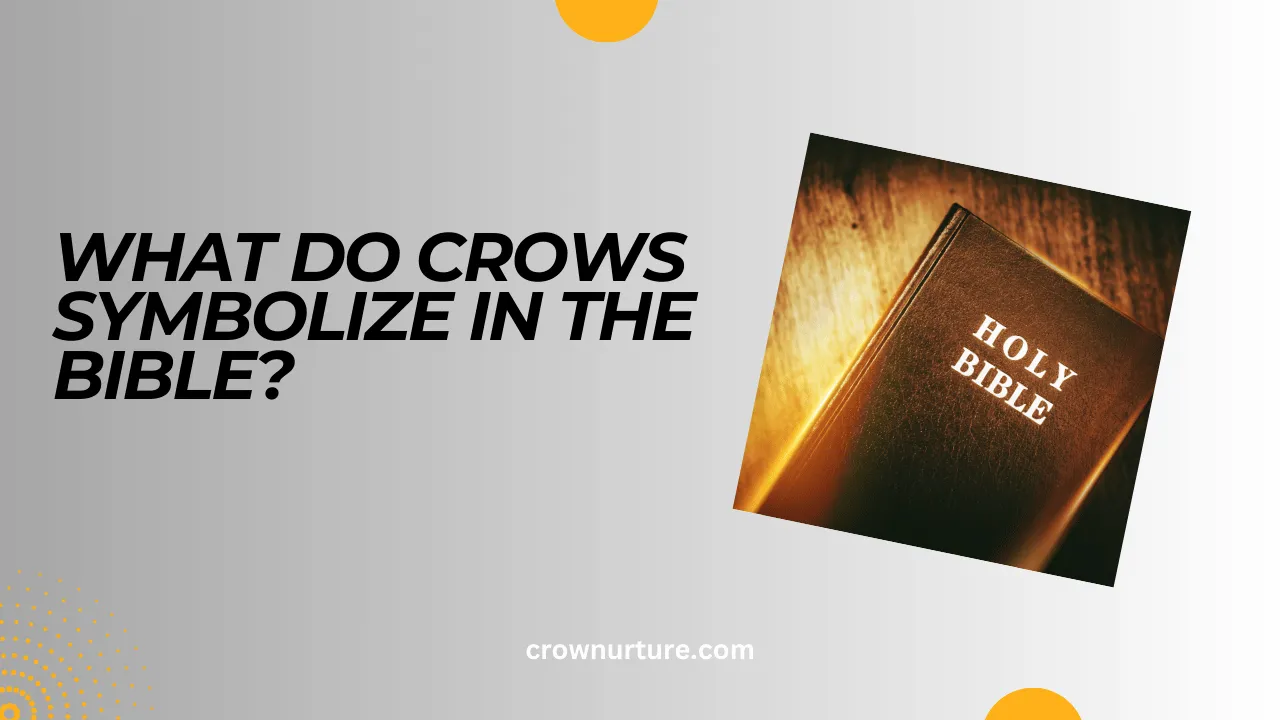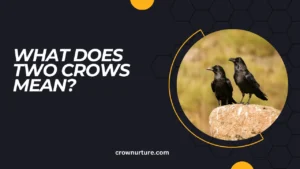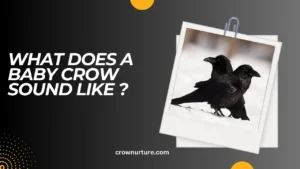Crows are often shrouded in mystery, their dark feathers and sharp cries evoking feelings of fear or fascination. In many cultures, these birds are seen as omens of death or misfortune, but in the Bible, their role is far more complex.
What if the crow, a creature we often overlook, holds deeper spiritual significance? The Bible, rich in symbolism, uses animals like the crow to convey profound truths about life, faith, and the divine.
From moments of desolation to acts of divine provision, the crow is a recurring figure in biblical narratives. Its presence prompts us to reflect on themes like God’s care for creation, the persistence of human struggle, and the contrast between sin and redemption.
By exploring what crows symbolize in the Bible, we can uncover lessons about our own spiritual journeys. Whether you’re curious about their connection to stories like Noah’s Ark or their role as unexpected providers, this exploration will open your eyes to the crow’s surprising significance in the sacred text.
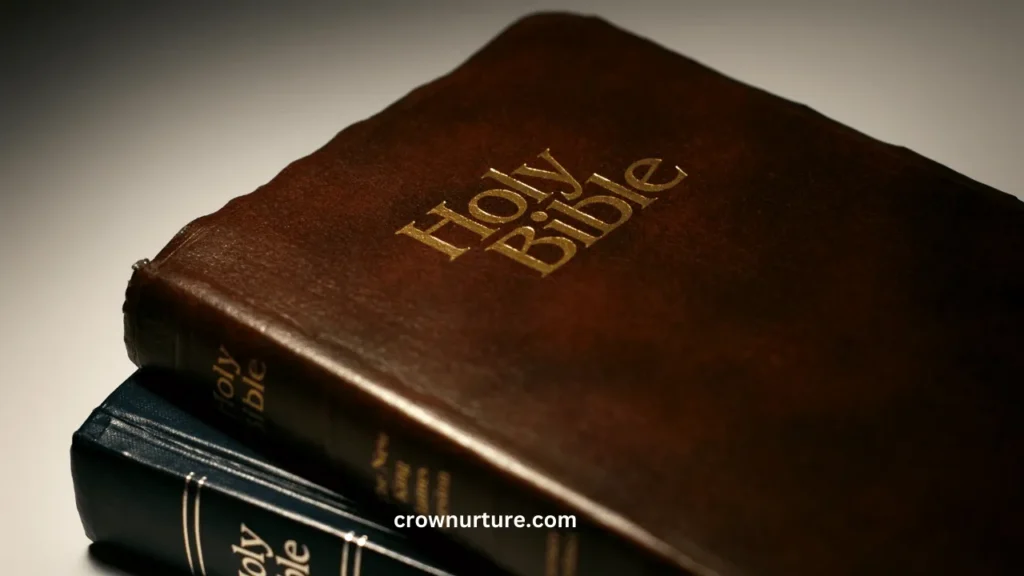
Contents
- 1 1. The Crow as a Symbol of Death and Destruction
- 2 2. The Crow as a Messenger of God
- 3 3. The Crow as a Symbol of Divine Provision
- 4 4. The Crow as a Creature of Contrast
- 5 5. Crows and the Broader Symbolism in the Bible
- 6 Conclusion
- 7 FAQs
- 7.1 1. What is the role of the crow in Noah’s Ark?
- 7.2 2. How is the crow portrayed in Elijah’s story?
- 7.3 3. Why are crows seen as symbols of death in the Bible?
- 7.4 4. Are crows considered unclean in the Bible?
- 7.5 5. What spiritual lessons can we learn from the crow?
- 7.6 6. How do crows contrast with other biblical birds like doves?
1. The Crow as a Symbol of Death and Destruction
In the Old Testament, crows are associated with death and desolation, often tied to unclean or forsaken places. In Genesis 8:7, Noah sends out a crow after the flood, but unlike the dove, it does not return, perhaps symbolizing chaos or unfinished judgment.
Crows were often seen scavenging on battlefields or wastelands, adding to their grim reputation. This imagery aligns with the spiritual consequences of sin, reinforcing the crow’s connection to themes of destruction and decay.
Although the New Testament does not directly reference crows in apocalyptic visions, their ominous nature resonates with broader biblical imagery of judgment and mortality, such as the warnings in Revelation.
2. The Crow as a Messenger of God
Despite its darker associations, the crow also appears as a messenger in the Bible. One of the most famous examples is in the story of Noah’s Ark, where the crow becomes an instrument in the search for dry land (Genesis 8:7).
Another striking example is in 1 Kings 17:4-6, where God commands ravens to feed the prophet Elijah during a famine. These birds bring him bread and meat, showcasing their role as divine providers and challenging our assumptions about their nature.
In both instances, the crow’s role demonstrates God’s sovereignty and the surprising ways He can use even unexpected creatures to fulfill His purposes.
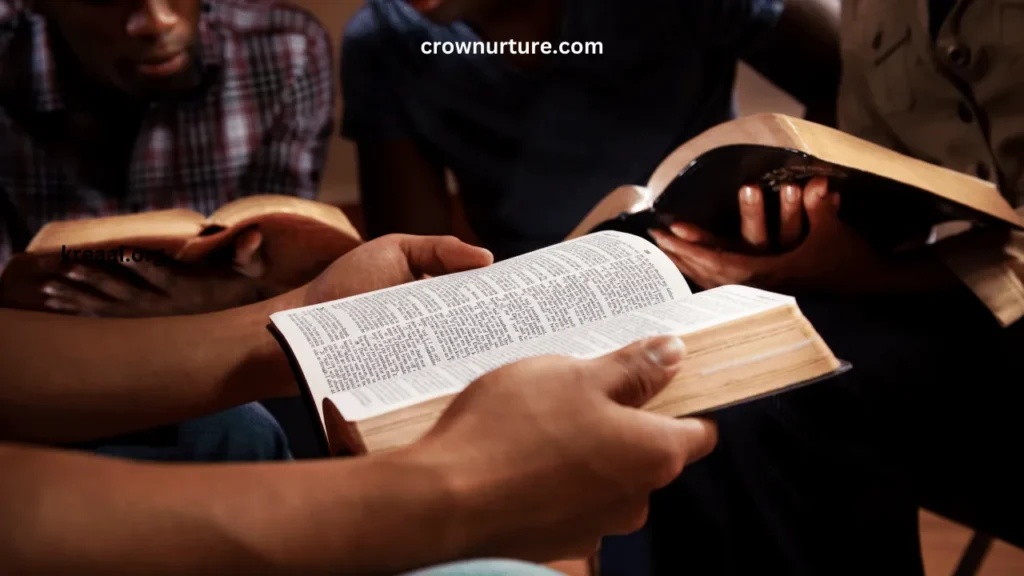
3. The Crow as a Symbol of Divine Provision
The story of Elijah at the Brook Cherith highlights the crow’s symbolism as a provider. Despite being considered an unclean bird, the ravens obey God’s command, bringing sustenance to Elijah in his time of need.
This act emphasizes God’s ability to provide in unlikely circumstances, using what may seem insignificant or unworthy to accomplish His will. It serves as a reminder that divine provision often comes in unexpected ways.
When compared to the dove, a symbol of peace and purity, the crow’s role underscores the idea that God’s grace extends to all of creation, even the most overlooked or misunderstood creatures.
4. The Crow as a Creature of Contrast
The Bible often uses the crow to highlight contrasts between light and darkness, purity and impurity, or life and death. In this way, the crow becomes a symbol of duality, reflecting both human struggles and divine redemption.
While the crow can signify destruction and judgment, it also represents renewal and provision, showing that God’s plan encompasses both discipline and grace. These contrasting roles reveal the crow as a multifaceted symbol in biblical narratives.
Cultural interpretations of crows often emphasize their negative aspects, but the Bible invites us to see beyond these perceptions, recognizing their role in God’s creation.
5. Crows and the Broader Symbolism in the Bible
Symbolism is a vital part of biblical interpretation, and crows are no exception. As scavengers, they remind us of human sin and spiritual decay, yet their role in Elijah’s story shows their potential for redemption.
Other birds, like doves or eagles, are often seen as noble or pure, but the crow’s presence teaches us about the diversity of God’s purposes. Every creature, no matter how humble or flawed, has a place in His plan.
The crow’s symbolism ultimately points to the complexity of faith, where even creatures of shadow can carry messages of hope and divine intervention.
Conclusion
The crow’s role in the Bible is both complex and profound. From its association with death and desolation to its surprising role as a divine provider, the crow challenges us to look beyond appearances and understand deeper spiritual truths.
In the stories of Noah and Elijah, the crow reminds us of God’s sovereignty and provision, even through unlikely means. Its presence in desolate places reflects human struggles, while its obedience to divine commands demonstrates God’s power to redeem all creation.
By reflecting on the crow’s symbolism, we can gain new insights into our own faith journeys, recognizing that God often works in ways we least expect. The crow, a misunderstood creature, ultimately serves as a testament to His wisdom and grace.
FAQs
1. What is the role of the crow in Noah’s Ark?
The crow was sent out to find dry land but did not return, symbolizing chaos and the persistence of judgment.
2. How is the crow portrayed in Elijah’s story?
In 1 Kings 17:4-6, God uses ravens (a type of crow) to bring food to Elijah, demonstrating divine provision through unlikely means.
3. Why are crows seen as symbols of death in the Bible?
Crows often inhabit desolate places, scavenging on carrion, which associates them with themes of death and decay.
4. Are crows considered unclean in the Bible?
Yes, crows are listed as unclean birds in Leviticus, meaning they were not to be eaten under Old Testament dietary laws.
5. What spiritual lessons can we learn from the crow?
The crow teaches us about God’s ability to use all creation for His purposes and the unexpected nature of divine provision.
6. How do crows contrast with other biblical birds like doves?
While doves symbolize peace and purity, crows highlight contrasts such as impurity and desolation, offering a different spiritual perspective.
